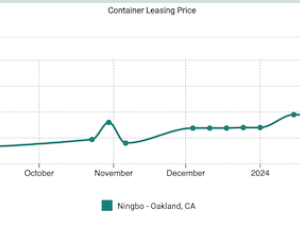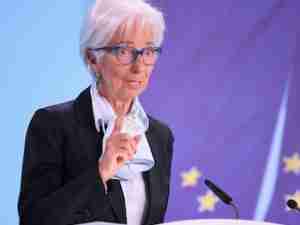Cargill Posts Loss After Wrong-Way Bets on Soybean Market
By: Shruti Date Singh | Aug 10 2016 at 05:00 PM | International Trade | Maritime
Cargill Inc. posted an adjusted operating loss in the fourth quarter partly because of wrong-way bets in soybean markets, joining other traders caught off guard by volatility in the oilseed used in cooking oil and animal feed.The operating loss in the three months ended May 31 was $19 million, compared with an operating profit of $230 million a year earlier, Minneapolis-based Cargill said Wednesday in a statement. Net income was $15 million, compared with a $51 million loss a year earlier stemming from asset impairments and costs related to Venezuela’s currency. The company, among the world’s agriculture giants, said sales fell 5 percent to $27.1 billion.
Annual adjusted earnings for fiscal 2016 were the lowest in four years, according to Cargill’s website.
“Obviously, we are not satisfied with the level of profitability where we are currently at,” Chief Financial Officer Marcel Smits said in a telephone interview.
A loss in the origination and processing segment was related to the rally in soybeans in April and May, “which worked against our view of the market,” spokeswoman Lisa Clemens said in a telephone interview. Results were “negatively affected” by trading and timing in oilseed processing, she said.
Wilmar International Ltd., Cargill’s Singapore-based rival, said in July that it lost $230 million in the second quarter, partly because of losses in soybean trading. The company also cited volatility in sugar and palm-oil markets.
Betting on markets is a daily task for traders. Cargill posted a 20 percent gain in first-quarter profit partly because of smart calls in corn and soybeans. The company said its team “ably navigated” weather-driven agricultural markets.
In the fourth quarter, the industrial and financial-services segment recorded a loss mainly because of an adjustment for “counterparty risk in ocean shipping,” and the energy businesses had “a small loss,” Cargill said.
The counterparty risk in shipping was related to “depressed dry bulk markets,” weak demand and an oversupply of ships, Clemens said. She declined to specify what led to the loss in energy and cited “challenging markets.”
In the 12 months ended May, “trading activities yielded mixed results, in part due to low volatility in agricultural commodity markets for most of the fiscal year,” Cargill said in the statement. “Stalled growth in several emerging economies also affected earnings.”
In the food ingredients and applications segment, the largest contributor to operating profit in the quarter and year, results were “substantially” higher, the company said. Edible oils, starches and sweeteners and the acquisition of Archer-Daniels-Midland Co.’s chocolate business contributed to higher results, the company said.
Meat Results
Profit “rose significantly” for animal nutrition and protein in the fourth quarter with some improvement in North America, Cargill said. The company cited “strong” turkey and value-added protein in North America and poultry globally, except in China.
The 151-year-old company has a diverse range of businesses including grain trading and livestock processing. Cargill has been reshaping its portfolio in the past year. The Black River Asset Management investment unit has been broken up and spun off, while the U.S. pork business was sold to Brazil’s JBS SA.
“We made important changes, adding capabilities essential to our customers’ success,” Chairman and Chief Executive Officer David MacLennan said in the statement. “This includes more than $3 billion in strategic acquisitions and new or expanded facilities, as well as nearly $2.4 billion in divestitures. These moves are making us more competitive in sectors where we intend to lead.”
In the full year, adjusted operating profit fell 15 percent to $1.64 billion. Net income rose 50 percent to $2.38 billion. Revenue dropped 11 percent after commodity prices dropped and the dollar strengthened.





